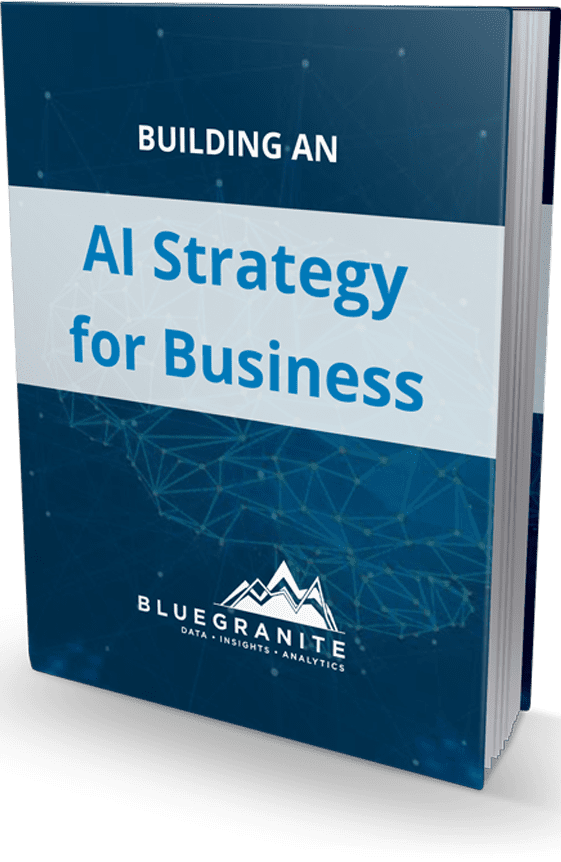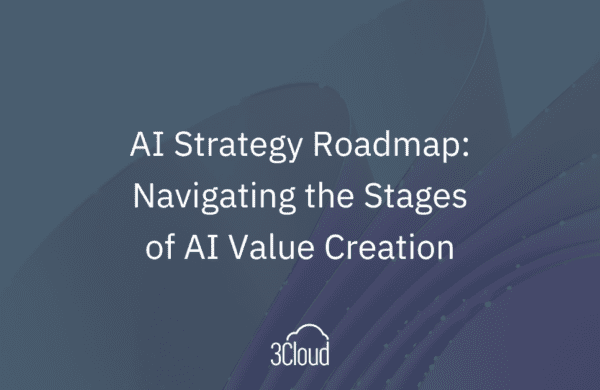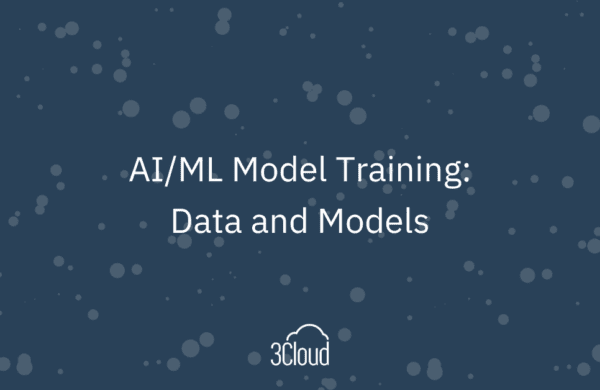
Because of rapid artificial intelligence advances and its seeming complexity, businesses that are new to the AI realm may be intimidated to take even the first step. However, as increasingly affirmed by academia and major corporations, these same businesses must begin leveraging AI to remain competitive. AI helps reduce operational costs and increase product and service revenues at a scale rarely offered by other technologies. To help business leaders who are early in their AI explorations jumpstart their strategies, 3Cloud published the whitepaper Building an AI Strategy for Business.
This whitepaper introduces the basic ideas of AI, discusses the fundamental components of an AI strategy, and highlights the wisdom of starting small. It begins by identifying and discussing the intangible components of an AI strategy, before diving into the practical components needed to build an AI solution. A successful AI strategy conveys an organization’s long-term AI vision; it may continue to evolve, incorporating more AI solutions as it grows. Building an AI Strategy for Business identifies three intangible AI strategy components and answers the questions outlined below:
- Finding a Business Case: It’s important to get stakeholders on board before investing in AI by establishing at least one business case. But how can one discover a business case? What are some characteristics of an appropriate first case to tackle?
- Ensuring Leadership Support: Leadership support is needed in every company-wide strategy to ensure sufficient resources are provided. What does overall company leadership need to demonstrate to steer a productive AI strategy? Who should oversee the strategy?
- Aligning Culture and Priorities: A motivated workforce with aligned priorities is critical to the success of an AI strategy. What are the qualities of an AI team that will “make it work”?
Regardless of how many solutions there may be in an AI strategy, and whether those change over time, four practical elements must be considered. The paper discusses these elements, and the various considerations and options each element may have:
- Finding the Talent: While the skill of a data scientist may be the first talent that comes to mind, implementing a successful AI solution depends on experts in multiple fields – spanning technology and business. What are these fields? How can outsourcing to outside consultants help with jumpstarting an AI solution?
- Choosing the Tools: The technical tools needed to create an AI solution are often perceived as complex and expensive. However, there are, in fact, pre-built AI algorithms that make leveraging AI much easier than one might imagine. What are some of these tools? And how does one determine when to use pre-built AI and when to use custom?
- Ensuring the Data and Infrastructure: Many people understand that AI requires a large amount of data. But what are other characteristics of the “right data”? As mentioned again and again, most recently by IBM’s CEO Ginni Rometty at the World Economic Forum in Davos, “You can’t have AI without IA (information architecture).” Setting up the right infrastructure is essential. So what does the right infrastructure need to do?
- Privacy Concerns and Regulations: Lastly, the whitepaper briefly touches upon the need for consideration of privacy concerns and regulations surrounding the data and algorithms related to any AI project. Because the use of data and AI models can profoundly impact people, consumer concerns and regulations must not be taken lightly. It is important to involve someone with experience and expertise in this arena.
The AI space evolves very quickly; therefore, 3Cloud will strive to update the whitepaper periodically for new materials and insights. An AI strategy requires numerous considerations. In developing such a strategy, as well as those that follow, a business needs to consider many things, both tangible and intangible. Whether you’re strategizing an AI implementation, looking to explore an initial business case, or you want to quickly see how an AI solution can benefit your business, 3Cloud can guide and help you along the way. Contact us today.




